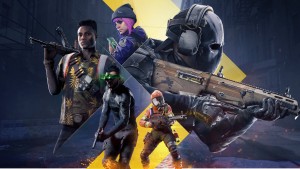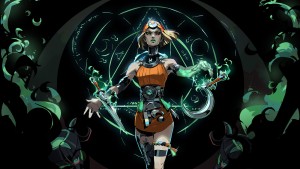Please support Game Informer. Print magazine subscriptions are less than $2 per issue
Opinion – What It Means Now That Games Have Respect And Legitimacy

Yesterday, I wrote a story about game resolution that sought to explain why a seemingly insignificant number is so important to so many. In it, I explored the artistic, technical, and business aspects that are woven together to make gaming a viable medium.
In that piece, I made an assumption (dangerous, I know). I suggested that games are an artistic discipline.
This has been a hotly debated topic for over a decade, and the industry has finally earned its legitimacy. The stigma of being a “gamer” has dwindled as devices have ended up in more hands and homes than we ever could have imagined.
And with that audience and legitimacy comes a necessary broadening of how we talk about games. My background is in business, and people like me, who listen to quarterly earnings calls and understand the complexities surrounding financial reports often speak about games pragmatically.
Resources get added in the form of money, manpower, and time. Games come out. People buy them and revenue gets funneled back to the company. Over time, this creates a financial picture for each developer and publisher as well as a set of trends for the industry.
| With that audience and legitimacy comes a necessary broadening of how we talk about games. |
This lens, while not the one I use exclusively, dictates much of how I approach coverage. It’s not the only way, though.
Someone with a background in the humanities, literature, or creative arts looks at the exact same products on the store shelves and sees something completely different. To that person, a game’s story will have deeper meaning, possibly including social overtones, hidden nods to other works, and an explanation of the human condition.

Still others shy away from the AAA, more commercial avenue of the game industry in favor of more artistically driven titles. These writers delight in covering game jams, the diverse indie scene, and creators in equal weight with creation.
And still other writers blend aspects of these approaches (and more) to create their own voices. Each writer is different, providing new context and content that seeks to demystify and make sense of the extreme complexity involved in creating a game.
There is an audience for these approaches and so many more. And this is something that everyone who loves games should celebrate. It means we are growing up and maturing.
Criticism of a medium evolves with that art form. As the pool of available works broadens so must writing and analysis of them.
The most important thing to understand is that as this diversification happens, not every piece of criticism written is going to work for the entire audience. It’s perfectly acceptable to disagree. There is no shame in reading something and having an intensely negative reaction.
As the number of voices in the field of game reporting and criticism grows, readers should feel comfortable curating not only what they play, but what they read about the medium. Find voices that resonate with you, even if you don’t always agree with them. And if you find a writer that doesn’t mesh with your interests? Move on. Find someone else.
But at the end of the day, realize that this is what we, as lovers of the medium, have always wanted. We asked for, pleaded, and then demanded legitimacy.
We won.
We have the respect that a $90 billion consumer base deserves. Now we just need to find a way to respect one another in this larger, more diverse community we all so desperately love.
No one is taking away the popcorn games, expansive AAA experiences, and gorefests that have defined the industry almost since the start. The new wave of empathy games aren’t replacing what you love. They’re just something new and different that broadens (not narrows) our understanding of what the word “game” means. And let's be honest, the idea of what a game is evolves constantly. Super Mario Bros. is as different from Pong as Grand Theft Auto V is from Super Mario Bros, yet all three comfortably fit under the "game" umbrella.
|
|
Things are getting better as developers in studios of all sizes push the boundaries of what we’ve come to expect. Stories are getting more involved, and players are being given more agency within them. The ways we interact with the worlds we choose to inhabit during our leisure time are becoming more varied and exciting.
We have every reason to celebrate what we play, even if that’s not the same thing as what others are picking up a controller for. It’s only going to get more interesting as more voices are empowered to make and write about games.










